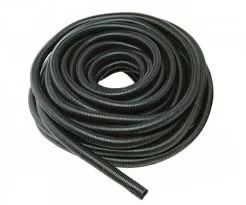bellows for ball screw
The Role of Bellows in Ball Screw Systems
Ball screws are essential components in various precision machinery and automation systems, known for their ability to convert rotational motion into linear motion with high efficiency and accuracy. However, one of the critical aspects of maintaining the performance and longevity of ball screw systems is the protection of their components, particularly the screw and nut assembly. This is where bellows come into play.
What are Bellows?
Bellows are flexible protective covers made from materials such as rubber, polyurethane, or metal. They are designed to protect sensitive mechanical components from dust, debris, and other environmental factors. In ball screw applications, bellows are particularly important as they prevent contaminants from entering the screw mechanism, which can lead to wear, damage, or even system failure.
Importance of Bellows in Ball Screw Systems
1. Contaminant Protection Ball screws operate at very tight tolerances, making them susceptible to dirt and debris that can accumulate within the assembly. Bellows act as a barrier, preventing particulates from reaching critical moving parts. This is especially vital in industrial environments where dust and chips from machining operations can be prevalent.
2. Lubrication Retention Proper lubrication is critical for the efficient operation of ball screws. Bellows help retain lubricant within the assembly by shielding it from external elements. This ensures that the ball screw operates smoothly, reducing friction and wear over time.
3. Temperature Regulation In some instances, ball screws may be exposed to fluctuating temperatures. Bellows can provide a degree of insulation, helping to regulate the temperature of the internal components and ensuring optimal operating conditions. This is particularly important in applications where precision and performance are critical.
bellows for ball screw

4. Reduced Maintenance By preventing the ingress of debris and retaining lubrication, bellows significantly reduce the need for frequent maintenance. Users can save time and resources, as regular inspection and re-lubrication can be minimized. This not only enhances the reliability of the ball screw system but also prolongs its service life.
Types of Bellows
Bellows come in various designs and materials to suit different applications.
- Rubber Bellows Often used in environments where flexibility and resistance to environmental factors are needed. They can withstand considerable compression and expansion and are effective at keeping contaminants out.
- Polyurethane Bellows These are known for their durability and resistance to wear. They are often used in applications that require both flexibility and strength.
- Metal Bellows These are generally used in high-temperature or high-pressure environments. While they are more rigid, they provide excellent protection and can handle extreme conditions.
Conclusion
In conclusion, bellows play a vital role in ensuring the efficient operation and longevity of ball screw systems. By providing protection against contaminants, retaining lubrication, regulating temperature, and reducing maintenance needs, bellows contribute significantly to the overall performance and reliability of precision machinery. Whether used in manufacturing, robotics, or other applications requiring precise linear motion, selecting the appropriate bellows is critical to achieving optimal performance and ensuring the longevity of ball screw assemblies. As industries continue to evolve and push the boundaries of technology, the importance of these protective components will remain a key consideration in the design and operation of advanced mechanical systems.








